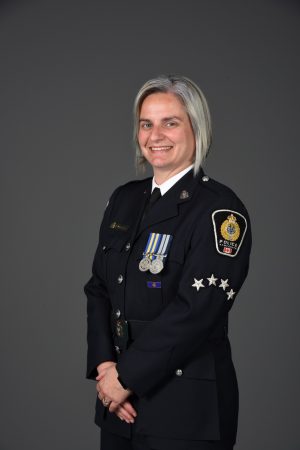
Women in Law Enforcement create “Cross-Canada Wisdom Web” for up-and-coming female leaders.
Female police officers face numerous barriers to promotion in municipal policing in Canada. For a variety of reasons, including that policing remains a male-dominated profession, there are very few female officers in high-ranking positions.
As society has evolved to include and recognize contributions of people from a variety of ethnicities and genders, policing has trailed behind. According to a 2017 Statistics Canada report, not only do women account for only 21 per cent of all sworn officers, they account for only 15 per cent of senior officers across the country. At chief constable, the highest rank, the percentage drops significantly. In 2020, only two per cent of police chiefs leading municipal police agencies were female.
With few female leaders comes a lack of female role models, mentors and decision makers. This impacts the types of services police agencies provide and how they respond to the public. In 2020, Vancouver Police Department Superintendent Michelle Davey (now a Delta Police Department deputy chief constable) began exploring the real and perceived barriers that female officers experience in promotion to higher ranks. In her research paper, “Addressing barriers to promotion for female officers in municipal policing in Canada”, Davey detailed these barriers: shift work, childbearing, childrearing, gender specific roles in policing, tokenism, organizational barriers, negative self-perception, and lack of role models and mentors. Davey also provided recommendations to create better opportunities for women to be promoted in Canadian police agencies. To address the lack of role models and mentors, Davey recommended formalized mentorship programs. She stressed the importance of junior women seeing successful senior women, at rank, who look like them, think like them, may have families just like them and who are supported by men, at rank, around them.
Around the same time that Davey was conducting her research, a group of seven women at the Vancouver Police Department formed BC Women in Law Enforcement (BCWLE), an association designed “to unite law enforcement personnel across British Columbia, to create opportunities for everyone to meet and discuss topical issues affecting women in policing, to provide training for issues specifically related to women and to facilitate networking and mentoring opportunities.” Prior to COVD-19, meetings were held in person and those in attendance were asked to share what they hoped to gain from membership in such an organization. One of the prominent requests was for some type of mentorship program.
In response to Davey’s recommendation and to the feedback received from women in law enforcement, I (a BCWLE board member and sergeant with the Vancouver Police Department) consulted with Davey and Port Moody Deputy Chief Leslie Stevens and “The Wisdom Web”, a term coined by Stevens, was born. From there, I began developing the web by reaching out to women in law enforcement organizations across Canada. I was able to bring together Ontario Women in Law Enforcement (OWLE) and Atlantic Women in Law Enforcement (AWLE) in order to create opportunities to share knowledge and experience between their members nationwide through the Cross-Canada Wisdom Web.
The Cross-Canada Wisdom Web connects service members with other members who can provide advice, support and expertise about topics such as promotion, leadership, career development, specialties and much more. Launched in February 2021, it currently has a total of 56 advisors: 23 in British Columbia, one in Alberta, 22 in Ontario and 12 in the Atlantic provinces. I am also actively reaching out to the newly-formed Alberta Women in Public Safety (AWIPS) and Saskatchewan Women in Policing (SWIP) associations in an effort to bring their members into the initiative.
The Cross-Canada Wisdom Web is an important resource for women to help break down gender barriers across the country. It provides up-and-coming female leaders with a place to seek advice like how to balance family and work life, how to successfully navigate a male-dominated work culture or learn about the roles and responsibilities of senior executives levels to prepare for future promotion. The diversification of police leadership relies on initiatives like the Cross-Canada Wisdom Web, to create mentorship and networking opportunities that promote progress within Canadian police organizations.
 Sergeant Tanya McLachlan is a 22-year veteran of the Vancouver Police Department. She is the currently the sergeant in charge of the VPD’s Equity, Diversity and Inclusion policy review and is the incoming President of BC Women in Law Enforcement. You can contact Tanya at tanya.mclachlan@vpd.ca.
Sergeant Tanya McLachlan is a 22-year veteran of the Vancouver Police Department. She is the currently the sergeant in charge of the VPD’s Equity, Diversity and Inclusion policy review and is the incoming President of BC Women in Law Enforcement. You can contact Tanya at tanya.mclachlan@vpd.ca.
Print this page